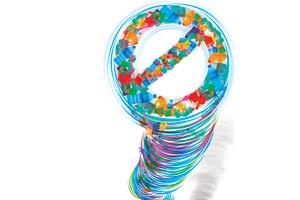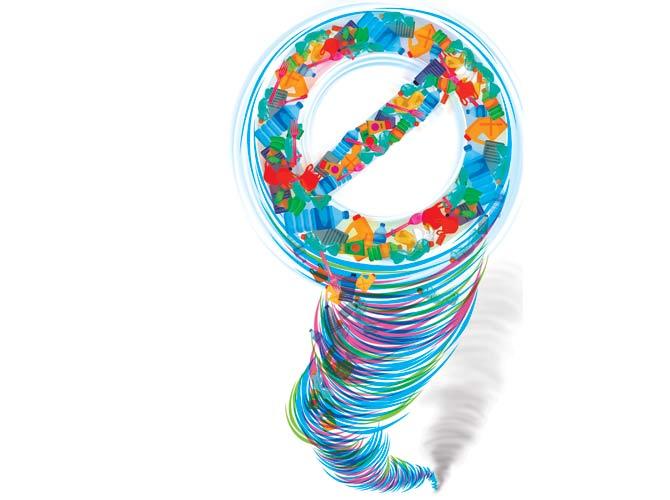Here's a look at how other countries have implemented the ban


Illustration/Ravi Jadhav
ADVERTISEMENT
The recent ban on plastic in Maharashtra has set off many a debate, as many say it has not been thought through. While the debates rage on, here's a look at how other countries have implemented the ban
Harmful effects of plastic
Plastic pollution involves the accumulation of plastic products in the environment that adversely affect wildlife, the environment and humans. Marine animals and birds can get entangled, ingest plastic waste, or be exposed to chemicals within plastic that cause interruptions in biological functions. Oceans will have more plastic than fish by 2050, if plastic pollution continues. In humans plastic effects could prove to be carcinogenic or promote endocrine disruption.
- Sea turtles often mistake plastic bags for jellyfish and consume them. Plastics have also been found in the stomachs of beached whales.
- Ingested trash can obstruct and damage a sea bird's digestive system.
- Every year around 8 million metric tons of plastic waste leaks into the ocean. This causes contamination of sediments at the sea-bottom and causes the plastic waste to be embedded in the aquatic food chain.
- Certain plastics can release harmful chemicals into the soil, which then seep into groundwater or other water sources. If plastic is incinerated, it increases carbon emissions. Uncontrolled incineration produces polychlorinated dibenzo-p-dioxins, a carcinogen (cancer-causing chemical).
- A 2017 study found that 83% of tap water samples taken around the world contained plastic pollutants. With a contamination rate of 94%, tap water in the United States was the most polluted, followed by Lebanon and India.
- Bisphenol A, or BPA, is a chemical found in many plastics that we use every day (bottles, spectacles lenses, CDs etc). It could cause fertility problems, male impotence, heart disease etc.
Around the world
Rwanda
With a ban on plastic bags from 2008, it is one of the cleanest nations. Violators even face jail time. Typical fines are around €67 (Rs 5,364). Since the ban, there have been reduced animal deaths, soil erosion, flooding and malaria.
Kenya
Those producing, selling or even using plastic bags risk imprisonment of up to four years or fines of $40,000 (Rs 2,608,318).
The Netherlands
Distribution of free plastic bags was banned in 2016. Recently a supermarket introduced the world's first plastic-free aisle in a store in Amsterdam. Goods here are packaged in compostable materials.
UK
Plastic microbeads were banned in cosmetics and personal care products early this year. Wales, Scotland, Northern Ireland and England have all adopted a minimum charge on plastic bags to curb their use. A restaurant in Penzance has begun to use biodegradable pots, wooden cutlery, paper straws and cornstarch plates for catering jobs.
France
In 2016 it became the first country to ban plastic dinnerware. From 2020, people will have to use bio-sourced, compostable equivalents.
The plastic soup
In 1997, Captain Charles Moore, an oceanographer, discovered large pieces of plastic floating in the middle of the Pacific Ocean and called it the 'plastic soup'. It is also referred to as the Great Pacific Garbage Patch, but Angelicque White, associate professor at Oregon State University, says, "It is not visible from space; there are no islands of trash; it is more akin to a diffuse soup of plastic floating in our oceans." It is estimated to be from 700,000 sq km (270,000 sq mi) (about the size of Texas) to more than 15,000,000 sq km (5,800,000 sq mi).
1 km
1 tonne of plastic waste can help make this length of road
2002
Bangladesh became the first country to ban plastic bags
1,000
No of years needed for plastic bags to decompose
Catch up on all the latest Mumbai news, crime news, current affairs, and also a complete guide on Mumbai from food to things to do and events across the city here. Also download the new mid-day Android and iOS apps to get latest updates
 Subscribe today by clicking the link and stay updated with the latest news!" Click here!
Subscribe today by clicking the link and stay updated with the latest news!" Click here!






